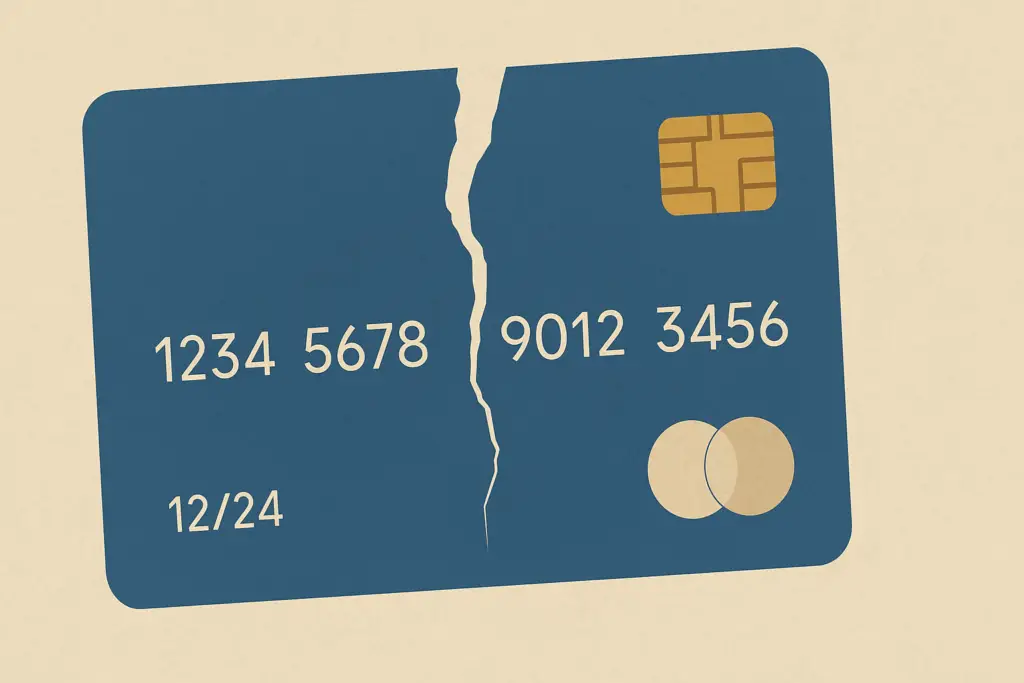April 23, 2025

Divorce is hard enough. But discovering that your ex is using your credit card without permission can turn a painful breakup into a financial nightmare.
Whether they memorized your card number or still had access to an old account, this type of post-divorce betrayal is more common than you might think—and it’s a serious form of identity theft.
If you’ve found yourself thinking, “My ex is using my credit card and I don’t know what to do,” you are not alone. And more importantly—you are not powerless.
In this blog, we’ll walk you through what counts as identity theft by an ex-spouse, what federal protections are in place, and what steps you can take right now to shut down the fraud, repair the damage, and reclaim control over your finances.
Divorce Doesn’t Give Your Ex the Right to Use Your Credit
After a divorce, finances that were once shared should be separated. Unfortunately, some exes take advantage of lingering access or saved information. They might continue to use a credit card they were once authorized on, or even open new accounts in your name using personal information they still know.
No matter what the past relationship looked like, unauthorized use of your credit card or personal information is identity theft. There are powerful federal consumer protection laws that protect you in such situations.
Even if your ex never physically took your card—if they use your account number online, or impersonate you to access your account—it’s still illegal.
Several different federal consumer protection statutes protect you from liability when someone else charges your account without your permission or opens up new accounts, racking up debt in your name.
What Is Identity Theft by an Ex-Spouse?
Identity theft happens when someone uses your personal or financial information without permission to commit fraud. In a post-divorce context, this can include:
Even if your ex had access during the marriage, that does not give them the right to use your accounts after the relationship ends. The moment you separate finances or remove them from an account, any continued use becomes unauthorized.
“My Ex Is Using My Credit Card”: Here’s What the Law Says
Several federal laws protect people who are victims of identity theft, especially when it involves credit cards or bank accounts:
The federal statutes references above are powerful tools in your favor. You just have to know how to use them.
What to Do If Your Ex Is Using Your Credit Card Without Permission
If you believe your ex is misusing your credit, it’s time to take action. Here’s a straightforward path forward:
1. Report the Fraud to Your Card Issuer or Bank
Call the customer service or fraud department and explain that your ex is using your credit card or bank account without authorization. Ask to close or freeze the account to stop further charges. Follow up with a written dispute to trigger additonal statutory protections. (For example, the FCBA requires a written dispute sent to the financial institution’s designated billing dispute address).
2. Check Your Credit Reports
Visit AnnualCreditReport.com and pull your credit reports from Experian, Equifax, and TransUnion. Look for unfamiliar accounts or inquiries. If you see anything suspicious, dispute it right away with the credit report agencies (not just the bank or credit card company).
3. File a Report with the FTC
Go to IdentityTheft.gov to file an official identity theft report. This generates an Identity Theft Affidavit, which you can use to prove the fraud to credit bureaus and financial institutions.
4. Consider Filing a Police Report
Filing a police report can strengthen your claim and serve as added documentation. This is especially helpful if your ex opened new accounts or made large purchases in your name. Some states (e.g. California) have additional legal remedies for identity theft where the consumer provides a police report to the creditor and is nonetheless denied.
5. Place a Fraud Alert or Credit Freeze
A fraud alert warns lenders to verify your identity before approving credit. A credit freeze goes further by locking your credit reports entirely—stopping any new accounts from being opened in your name. These are free and can be done online.
Reclaiming Your Financial Independence After Divorce and Identity Theft
This type of financial abuse after divorce can feel overwhelming, but recovery is absolutely possible. Once you’ve taken the first steps, it’s important to:
And if creditors still try to collect on fraudulent charges, or the credit bureaus refuse to correct the damage? That’s when it’s time to bring in a legal team.
You Don’t Have to Deal With This Alone
At Schlanger Law Group, we help clients nationwide who are facing identity theft after divorce. We’ve represented countless victims of identity theft, unauthorized charges, and credit report errors. We know how to hold credit bureaus, banks, and other financial institutions and payment platforms accountable—and we fight to clear your name.
In many cases, we can represent you at no upfront cost. That’s because laws like the FCRA, FCBA, TILA and EFTA require companies that violate your rights to pay your legal fees if we win.
📞 Free Consultation: Take Back Control of Your Credit
If your ex-spouse is using your credit card or misusing your identity, you don’t have to let it ruin your finances or your credit. Schedule a free consultation with Schlanger Law Group today, and let’s talk about how we can help you protect your credit and finances, and pursue justice.

By Schlanger Law Group Staff
Schlanger Law Group In The Media




Reach out to Schlanger Law Group for a free consultation, and let’s discuss your case with no upfront fees.
The information on this website is for general information purposes only. Nothing on this site should be taken as legal advice for any individual case or situation.
This information is not intended to create, and receipt or viewing does not constitute, an attorney-client relationship.
ATTORNEY ADVERTISEMENT | Past Results Do Not Guarantee Similar Outcomes in the Future
This site is protected by reCAPTCHA and the Google Privacy Policy and Terms of Service apply.
WEBSITE BY: VISIONTRACTION